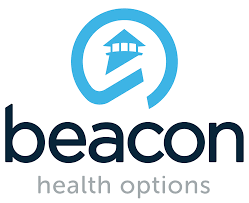The Blanchard Institute
How Do I Know If I Need To Go To Rehab?
Help For Yourself
Help For A Loved One
704-288-1097
Health Insurance Verification Form
When To Consider Attending Rehab
It might be difficult to determine whether it is appropriate to enter drug rehab such as The Blanchard Institute. After all, there is no specific day or time on a calendar that indicates when our substance use has become a problem. Many people find it challenging to decide to seek treatment. This is one of the reasons why, despite more than 20 million Americans being addicted to at least one substance, only around 10% of people with substance abuse problems receive treatment. A large part of this stems from the fact that most people are unaware of when drug treatment is genuinely required.
Our first objective at The Blanchard Institute is to assist in reconstructing lives that have been shattered by addiction. One of the most effective methods to accomplish this is to assist family members, and friends in recognizing the major symptoms that your loved one requires admission to an addiction treatment clinic.
Recognizing The Signs It’s Time To Go To Rehab
Here are five basic areas of conduct to help you decide if it’s time to get therapy and go to rehab:
#1. Lies, deception, and secrets
One of the first symptoms that your loved one needs to go to rehab is that they don’t tell the truth very often. Addiction thrives in the shadows. If you catch them doing drugs, for example, they may start making up excuses. You notice they start lying more. Telling you the drugs aren’t theirs, or they just found them when you know that isn’t the case. Eventually, lies become a way of life. You may notice a shift in their behavior, and many areas of their life may become hidden from you.
While this type of conduct is out of character and hard to witness, it clearly indicates that they require assistance from licensed professionals such as The Blanchard Institute. If you have noticed that your loved one is being secretive and suspect they have a problem, give us a call. We would be happy to cover ways you can speak to them about it and how to bring up rehab as an option. Our licensed therapists are trained to work with addicts and how to speak to them in a manner that isn’t confrontational but productive.
#2. Drugs Are Used for Self-Medicating
Self-medicating is another sign that your loved one needs professional help. When self-medicating begins, you may notice specific behavioral patterns in your loved one. When they are disturbed, furious, sad, depressed, disappointed, or even grumpy, they may turn to drugs, using these substances to feel better. While you may not see them directly taking drugs, they may disappear for a short time after an angry outburst or at moments of stress. You may then realize that they are under the influence when they return.
Self-medicating is frequently an indicator of underlying disorders such as ADHD, PTSD, anxiety, or depression. Your loved one may take medications to self-medicate for a variety of reasons, including:
- Trying to get away from a painful reality
- Bored
- Desiring to fit in
- Being harassed
- Wanting to try something new
- Experiment, or go on an adventure
Whatever the reason, this is a symptom that requires expert assistance. Our dual diagnosis program at The Blanchard Institute treats both substance abuse and the underlying mental health conditions that cause addiction.
#3. A Desire to Quit but an Inability to Do So
If your loved one has attempted and failed to quit using drugs, it may be time to seek professional assistance. When the brain becomes accustomed to medications, a chemical dependency can emerge. This means the brain needs medications or drugs to function, or so it thinks so. When a loved one abruptly stops using drugs, the brain struggles to adjust to the new reality, producing physiological signals that something is wrong.
For example, serotonin, endorphins, and dopamine levels can plummet dramatically. When these hormones are depleted, people may experience hallucinations, exhaustion, paranoia, anxiety, and despair. These and other withdrawal symptoms increase your loved one’s desire for drugs. If they give in to their urges, they will need to consume even more drugs to feel “normal.” This feeds the addiction cycle even more. Individuals may eventually be unable to stop using unless they receive professional and clinical assistance. If you know your loved one wants to stop using drugs but cannot do so on their own, please contact a member of our staff today.
#4. Job Loss and School Expulsion
While this may appear to be an apparent red flag, leaving work or school can be easily missed if your loved one fabricates justifications for their behavior. However, because addiction is habitual, missing work or school on occasion often leads to neglecting these commitments totally. Loss of employment or expulsion from school are signs that your loved one has lost control. Feeding their addiction has become their primary motivator, rather than furthering their education or profession. When you become aware of this problem, it might just be time to for them to go to rehab.
#5 – Other Signs of Addiction
You’ll also know it’s time to go to rehab if you find your loved one exhibiting additional symptoms of addiction, such as:
- Thinking about drugs obsessively
- Having to use drugs to have a nice time
- Using one medicine to counteract the effects of another
- Being concerned about running out of medications
- Stealing things to pay for drugs
- Being arrested or hospitalized because of drug use
- Overdosing
- Failing relationships due to their drug use
Deciding To Go To Rehab Could Change Your Life
Addiction is a condition that many individuals try to conceal. Ignoring addictive habits, on the other hand, does not make them go away. Substance abuse can take over your life until you find expert help. Even the most highly functioning addicts must reach a breaking point. While many people try to quit independently, without help, they risk losing their family and friends, relationships, money, reputations, and jobs.
But, at The Blanchard Institute, we believe in taking a risk. Addiction does not have to rule your life indefinitely. Rehabilitation is effective. Don’t suffer in silence while attempting to control your addiction on your own. Step outside your comfort zone and contact us today if you or a loved one needs to get back on track and go to rehab.
Rehab FAQ’s
Why Does Rehab Have A Stigma?
When many people picture someone battling substance use disorder (SUD), they may not always see the person from a compassionate space. For example, some may believe those suffering with substance use disorders are untrustworthy, unworthy of love and connection, or have problems controlling impulses. The belief that people with substance abuse problems are weak minded is a rampant perception many have. As a result, people are less inclined to be empathetic to those seeking help or wanting to go to rehab. These stigmas can also hinder people from getting the help they need because they feel shame. It’s important for people to understand there is not just one face of addiction.
How Do I Prepare To Go To Rehab?
Once you’ve committed to going to an addiction treatment center, it’s time to think about the steps you should take in order to be fully prepared for your stay in rehab. Many people who go to rehab for the first time may not know what to expect and worry about putting things on hold while away, such as your job, bills or family obligations. It’s important to remember that it’s completely normal to feel stressed about this new process, and that all of these worries can be dealt with by taking the time to properly prepare for rehab.
You have already made the difficult decision that it’s time to get help. Now, it’s just about taking the appropriate measures that will allow you to return to a positive space where you can successfully use the skills you learned in rehab.
Will My Insurance Cover Me If I Go To Rehab?
Most insurance plans cover additional treatment under new and updated healthcare rules. With the continued push for healthcare reform, the number of people seeking rehab for alcohol or substance abuse disorders could double in the coming years. Because that is now the insurance trend, it is now easier than ever to obtain treatment, including outpatient rehab.
Of course, you will need to check with your insurance provider to ensure coverage. All insurances differ in the coverage they cover and the types of procedures. Be sure to call your provider to find out more.
Insurances We Accept











Previous
Next
Health Insurance Verification Form


